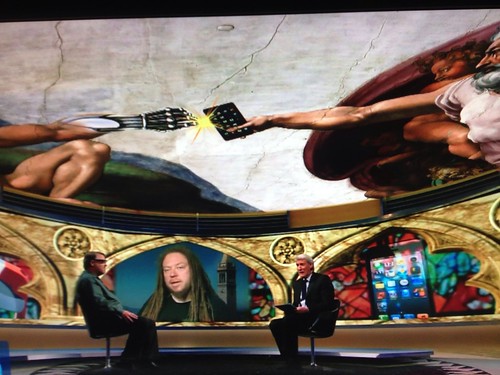I am actually writing this on a Thursday as on the Friday that this, hopefully, auto posts I will be heading down to Bath for a friend’s stag do. I will probably be in no fit state to use a keyboard by about 5pm, which is like most working days actually. This week and last I have actually been trying to use a keyboard more and start writing some stuff. I posted a grumpy thing about why I don’t like future branches and I have two other big posts currently squabbling for my constantly flitting attention. One of those is about the adjacent possible in big organisations. How easy is it to make things happen and what can you change about the organisational environment to help. Hopefully I will get that written sometime this year. Meanwhile the first post of ten looks at why innovation thrives in cities and touches on some of the very things I have been thinking about a bit recently. My other choices for this week include why your ideas get turned down (a feeling I know too well), electric cars, worthless coders, no screen design, robot brands, when Wall Street came to London, Burroughs & Bowie and seminal 90s computer games TV show Gamesmaster. What more could you want? How about a picture of a Google Glass wearing Robert Scoble, Jared Lanier, Jeremy Paxman all inside some sort of virtual reality Florentine chapel. Weirdest bit of TV this week by far.

I have no idea what is going on. Photo by Antimega
Why innovation thrives in cities
What the new work shows, Pentland says, is that “a lot of the things that people have been arguing about for centuries are not actually things that need explaining. They just come from the basic pattern of social networks.”
Why Your Great Ideas Get Turned Down
For a work to be truly creative, it has to depart from the status quo at some point. That departure makes many people uncomfortable. Despite our oft-stated desire for more creativity, we also hold a stronger desire for certainty and structure. When that certainty is challenged, a bias against creativity develops.
Plug Vs Pump
Even without a Supercharger network, EVs are actually much easier to refuel than gas-powered cars, precisely because the “scale and infrastructure” problems were solved by the electrical grid a hundred years ago. Once consumers get used to the charge-at-home ritual, the pilgrimage to the gas station will very quickly feel as inconvenient as rewinding the VHS tape and driving it back to Blockbuster.
Are coders worth it?
I have a friend who’s a mechanical engineer. He used to build airplane engines for General Electric, and now he’s trying to develop a smarter pill bottle to improve compliance for AIDS and cancer patients. He works out of a start-up ‘incubator’, in an office space shared with dozens of web companies. He doesn’t have a lot of patience for them. ‘I’m fucking sick of it,’ he told me, ‘all they talk about is colours.’
Designing the No-Screen Experience
The point is that the Web (and, for that matter, the Internet) does *not* depend on screens for interaction. Sure, they are one, currently very major, way of interacting with electronic media, but they are not the only way – witness Apple’s Siri, whose primary interface is through voice. Even if that example is slightly spurious, it is undeniable that screens are not a pre-requisite for interfacing with the Internet or Web.
The Human Paradox
Leila Takayama’s Friendly Machines is a perspective on why we get frustrated with the limited capabilities of robots. She argues that we need to stop being obsessed with trying to make human-like robots and instead spend our efforts making robots that are more human-friendly in their form, behavior and function. Human-friendly rather than human-like. A subtle but important distinction. Now this might be a stretch but you could replace the word “robots” in the above with “brands”.
The Way They Live Now
Within a decade half the graduates of Oxford and Cambridge were trying to forget whatever they’d been taught about how to live their lives and were remaking themselves in the image of Wall Street. Monty Python was able to survive many things, but Goldman Sachs wasn’t one of them.
Beat Godfather Meets Glitter Mainman
Burroughs: I dream a great deal, and then because I am a light sleeper, I will wake up and jot down just a few words and they will always bring the whole idea back to me.
Bowie: I keep a tape recorder by the bed and then if anything comes I just say it into the tape recorder. As for my inspiration, I haven’t changed my views much since I was about 12 really, I’ve just got a 12-year-old mentality.
GamesMaster: The Inside Story
“I’m not interested in fuelling that fire,” says Diamond, when I ask him about the feud. “The way I treated Dave on screen is not something I am particularly proud of. It was perilously close to bullying. As much as we felt Dave was being a dick, with this whole Games Animal thing and thinking the wheel was square before he got his hands on it – I think we humiliated the guy. Yes, at the time, he was a dick. But jeez, no one was a bigger dick during the 90s than me.”
More again at a similar time next week. You can subscribe via email and if you did you would have got this a whole day early this week. Can you imagine that?


Leave a Reply